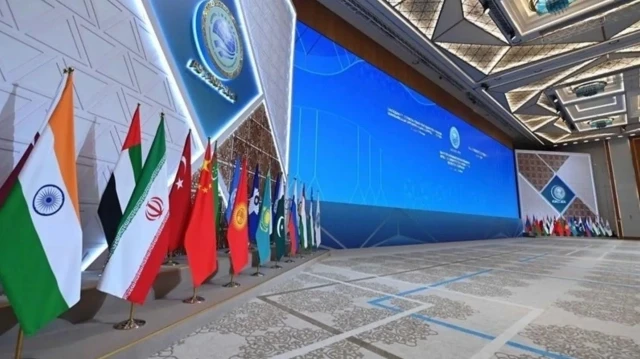
Tianjin Declaration released as China hosted 2-day summit of SCO leaders, 5th time since bloc was formed in 2001
The leaders of the Shanghai Cooperation Organization (SCO) on Monday adopted 24 documents to strengthen cooperation in security, economy and cultural exchanges.
The documents were adopted at the SCO summit of leaders in the northern Chinese port city of Tianjin.
China’s President Xi Jinping hosted the two-day summit of SCO leaders as well as “SCO plus,” bringing together some 20 heads of state and government, besides leaders of international organizations.
It was the largest gathering of the SCO as well as the fifth time hosted by China since the bloc was formed in 2001.
The leaders also adopted a 10-year SCO Development Strategy until 2035, which “defines the priority tasks and main directions for deepening multifaceted cooperation in the interests of ensuring peace and stability, development and prosperity in the SCO space,” read the joint statement, dubbed as the Tianjin Declaration.
Amid the US tariffs, which have roiled international markets, the SCO leaders expressed support for the multilateral trading system.
They also marked the 80th anniversary of World War II victory and of the founding of the UN, the declaration added.
The SCO evolved from the "Shanghai Five" mechanism comprising China, Russia, Kazakhstan, Kyrgyzstan and Tajikistan before Uzbekistan joined as the sixth member. Today, it includes 10 member states, two observers and 14 dialogue partners across Asia, Europe and Africa.
Laos was accepted as 15th dialogue partner at the Tianjin summit on Monday.
The organization covers approximately 24% of global land area and 42% of the world’s population, with member states accounting for roughly one-quarter of global GDP and trade increasing nearly 100-fold in two decades.
China’s trade with SCO members, observers and dialogue partners reached a record $890 billion in 2024, or 14.4% of its total foreign trade.
The previous SCO leaders’ summit was held in Kazakhstan in July 2024, where 25 strategic documents were adopted covering energy, security, finance and information security.







